
Delta 8 THC for Seasonal Allergies: Can it Help?
Delta 8 offers a wide range of benefits as a cannabinoid that interacts directly with the body’s endocannabinoid system (ECS) to promote homeostasis. While many
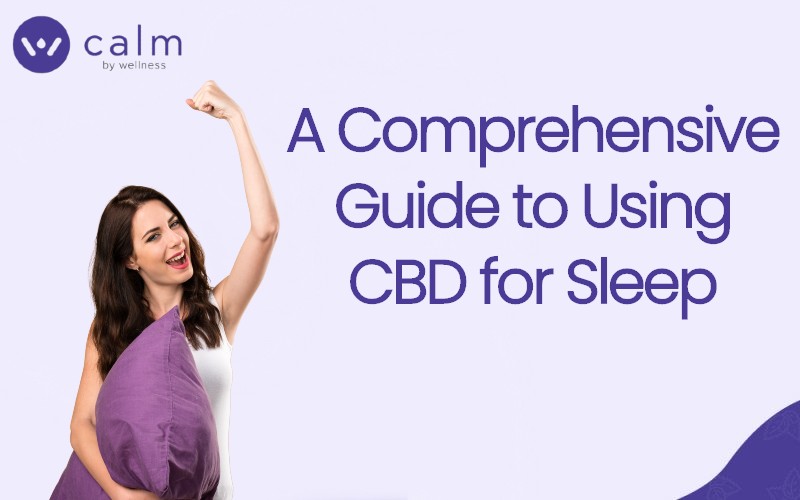
CBD is short for cannabidiol, the second-most prominent compound found naturally in the cannabis plant. Cannabis has over 100 active compounds, called cannabinoids that interact with the body’s endocannabinoid system (ECS). The ECS functions to help the body stay balanced and healthy.
Most people know cannabis for its most prominent cannabinoid, THC, which is psychoactive and leads to the “high” feeling associated with the plant. CBD, however, is not intoxicating. Instead, mounting research indicates that it may have a variety of therapeutic benefits, including pain relief, reducing epileptic seizures, and helping with anxiety and depression.
Studies also show that CBD could help with sleep issues. Sleep issues plague millions of people around the globe and can lead to other health problems, such as increased anxiety, depression, and risk of congestive heart failure. As such, it is worthwhile to understand how exactly CBD could benefit those who have trouble sleeping.
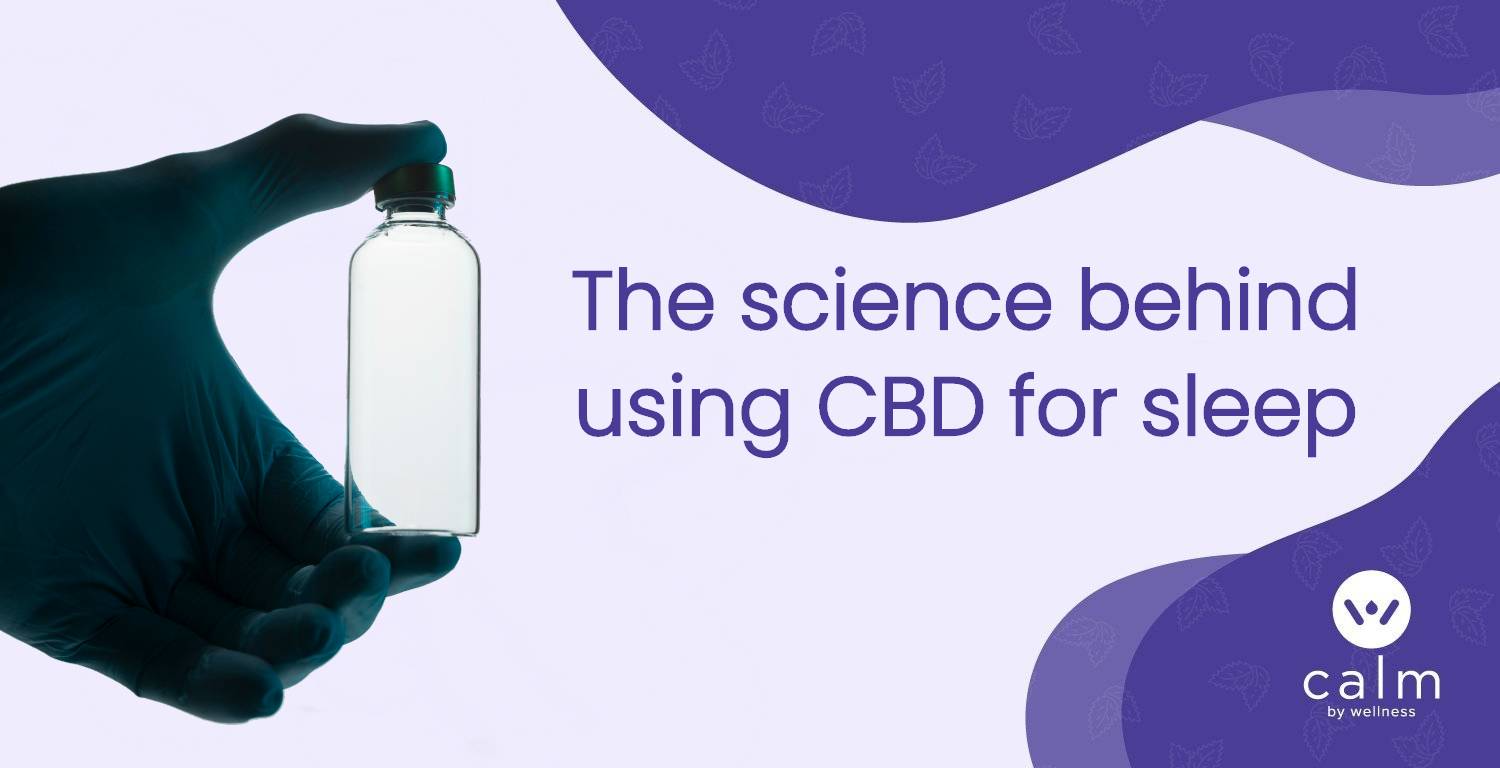
The reasons CBD may help with sleep issues are complex. CBD seems to have a direct sedating effect, though its indirect effects related to pain and inflammation relief, influencing mood, its overall calming effects, and its impact on the circadian sleep/wake cycle may be responsible for why CBD could help people with sleep issues.
While research into the use of CBD therapeutically for sleep is still in its early stages, what is known is promising. Studies have shown evidence in both animal models and humans that CBD can help people sleep.
The peer-reviewed Permanente Journal published research in 2019 looking into CBD’s potential therapeutic benefits for sleep and anxiety. Almost 80 percent of study participants reported reduced anxiety and about 67 percent reported sleeping better. These results were attributed to the way CBD presents a calming effect on the central nervous system of the body. While CBD’s sleep benefits seemed to fluctuate over time, the overall results were always notable and positive.
A 2017 preliminary study also found CBD to have potential benefits in treating insomnia, REM sleep behavior disorder, and excessive daytime sleepiness.
Sleep Medicine Reviews published a systematic review of the best cannabinoid preclinical and clinical studies through 2020 that showed promising preliminary evidence for the use of CBD and other cannabinoids in treating insomnia, sleep apnea, PTSD-related sleep issues, rapid eye movement sleep behavior disorder, narcolepsy, and restless leg syndrome. This data made it clear that further controlled research regarding the efficacy and safety of using cannabinoids for sleep issues is warranted.
Many sleep issues are not caused by sleep disorders directly. Chronic pain, stress, anxiety, depression, and many other diseases can also cause people to have trouble sleeping.
Chronic pain is a common cause of sleep disturbance, and there is evidence accumulating for the role of CBD is reducing chronic pain. Research from 2018 published in Frontiers in Pharmacology indicates that CBD seems to regulate perception of pain in addition to having significant overall analgesic and anti-inflammatory effects. Inflammation is one of the main causes of neuropathic and other kinds of pain. Therefore, by reducing pain, CBD may lead to sleep improvement.
A systematic review published in 2020 in the Journal of the American Pharmacists Association analyzing the current evidence available for CBD’s role in reducing anxiety found that CBD improved anxiety in participants with generalized anxiety disorder, social anxiety disorder, and PTSD.
While additional studies are needed to confirm these results, CBD shows promise as a therapy for anxiety. Anxiety is often cited as a cause for sleep issues, so using CBD to calm anxiety may also be effective in helping people sleep.
Many doctors have confirmed this, including Jessica Nicolosi, a NYC-based doctor in psychology and clinical psychologist: “Many of my patients have reported that CBD has helped reduce feelings of anxiety, making them feel more relaxed and calmer. They are less likely to report panic symptoms or dramatic shifts in mood, and they say that it helps reduce difficulty initiating sleep.”
The biological mechanisms of CBD on the body are still unclear, meaning that scientists are still not sure of why exactly CBD helps with sleep disorders. As the investigation into how CBD works continues, that information will likely materialize.
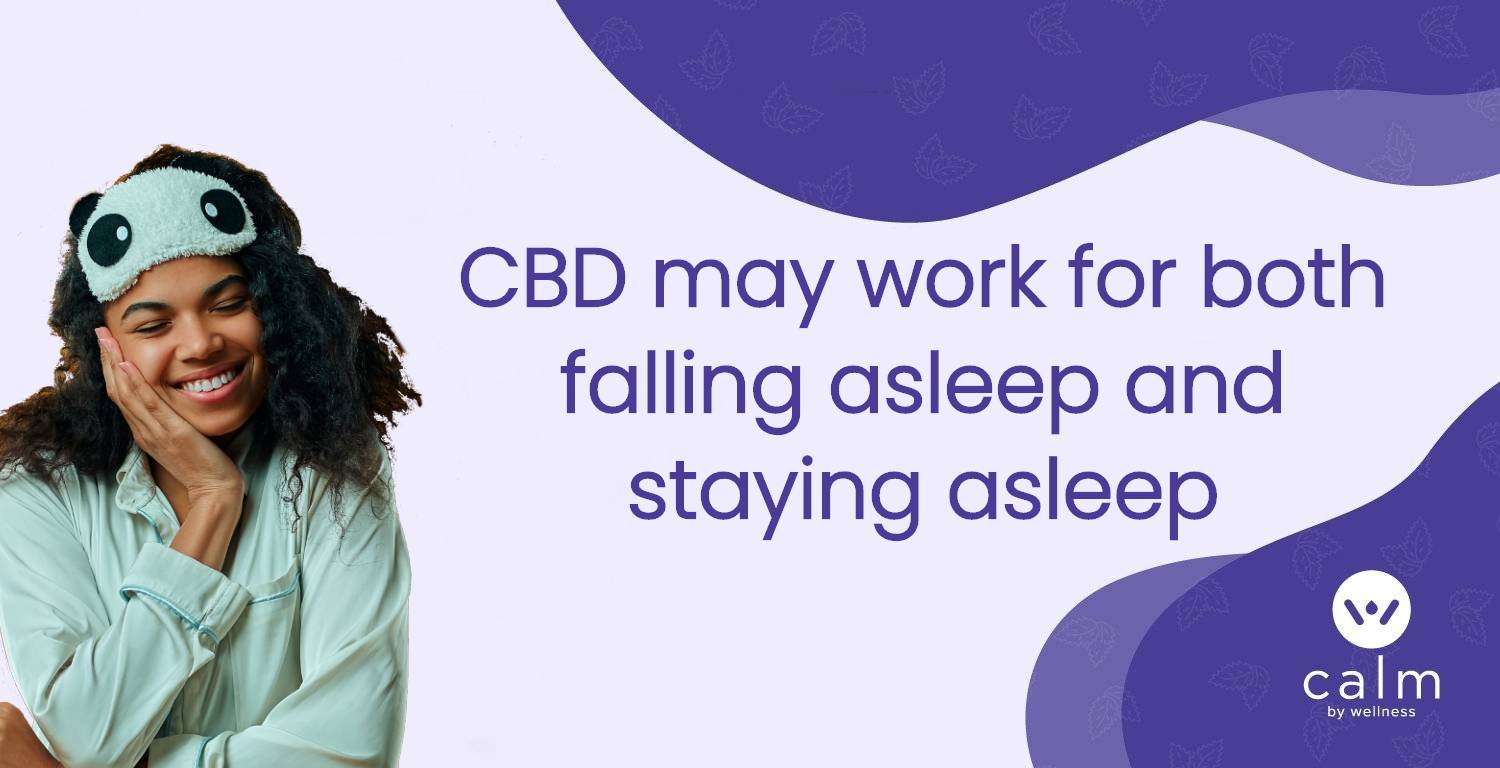
Sleep issues are complex by nature. Sometimes they are related to falling asleep, while other times they are related to sleeping soundly through the night. Both are problematic, as they lead to an overall lack of sleep, which can cause health issues and reduced quality of life in the short and long term.
A large 2018 study with 409 adult participants found that CBD provided a statistically and clinically significant improvement for people suffering from insomnia over the course of two years. In this study, the higher CBD potency was associated with greater insomnia relief.
Various studies have also found that one of the side effects of CBD, particularly in larger doses, is that it causes drowsiness. While this can be considered an adverse effect for those looking to treat other illnesses without being tired, for anyone having trouble sleeping, CBD could be the answer. For instance, a 2020 article published in Brain: A Journal of Neurology noted that the most common side effect of the CBD-based UK epilepsy drug Epidyolex was drowsiness.
A 2017 study on CBD’s use in refractory epilepsies found its most common side effect was drowsiness. These are just two examples of many that show CBD to cause drowsiness, indicating the potential of its use directly to help people fall asleep.
Additionally, CBD may be able to help people with sleep duration and quality. A 2012 study on CBD’s potential sleep benefits found that CBD improved sleep quality, helping participants stay asleep for longer. These results were associated with a high dose of CBD at 160 mg.
Furthermore, randomized, double blind, placebo-controlled research from 2018 found that CBD could reduce the amount of time spent in the REM phase of sleep. Sleep occurs in two distinct cycles that repeat: a REM phase and a non-REM phase. REM sleep, where dreams take place, is the less restful cycle, while the non-REM cycle provides a more restful state. Using CBD could cause a person to spend more time in non-REM sleep, which will lead to better-quality sleep and waking up less tired.
The combination of CBD with THC may produce something called the “entourage effect,” where using CBD and THC together may have better sleep results than using CBD on its own. One 2007 study showed that the drug Sativex, which contains a 1:1 ratio of CBD to THC, found that CBD seemed to activate THC, which made it more effective at sedation.
Studies have shown that CBD can counteract the psychoactive effects of THC, so using them together can be safe for those who do not want to feel intoxicated.
Brent Bauer, M.D., the director of research for the Mayo Clinic Integrative Medicine program, says, “There are many intriguing findings in pre-clinical studies that suggest CBD and hemp oil…may be helpful with improving sleep.” Still, none of the research on CBD’s use for sleep issues is conclusive, but with its increasing legality in the US and globally, continuing research is likely to change that.
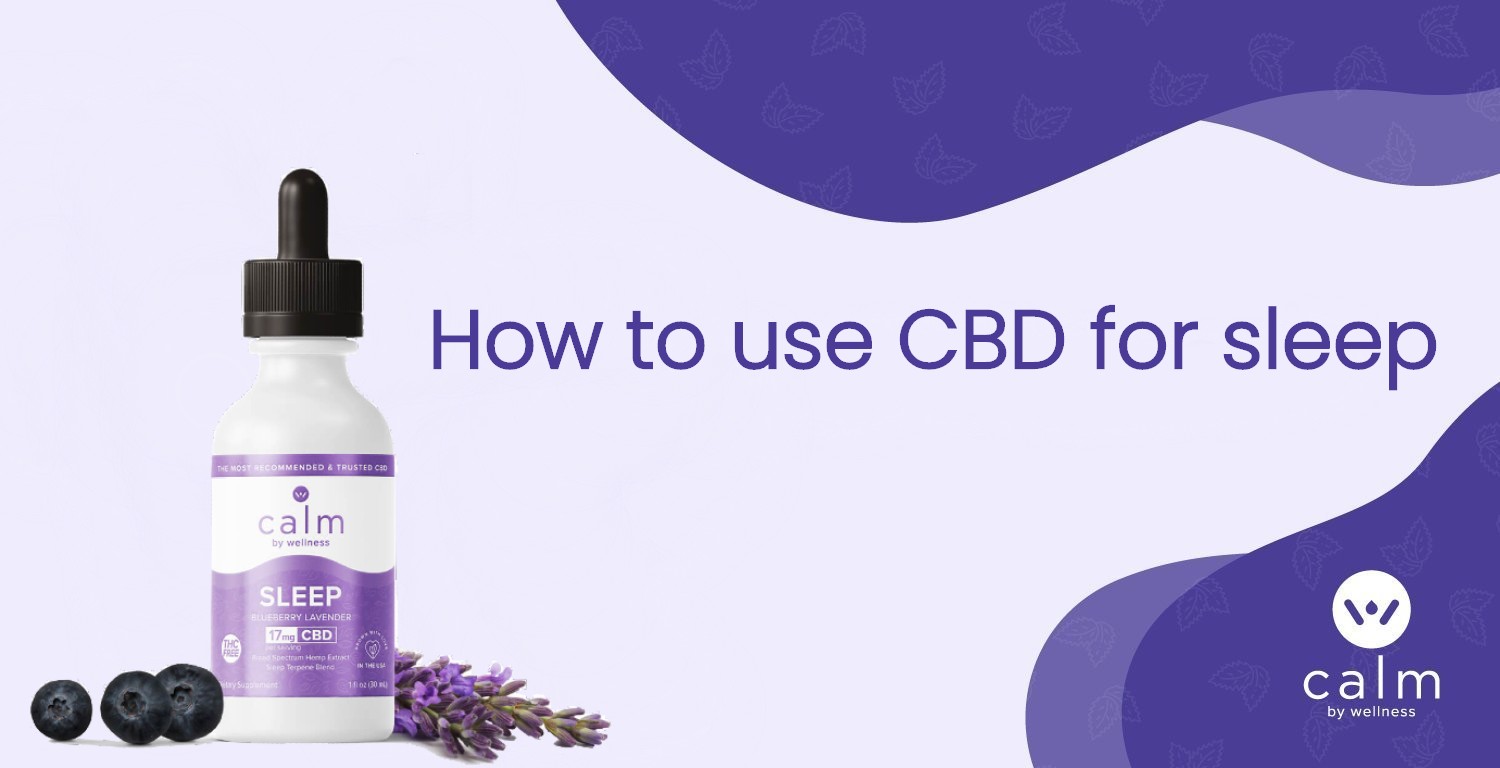
CBD comes in different forms. Typically, it is extracted from the cannabis plant and made into an oil. Consuming CBD oil can occur by vaporizing it, ingesting it directly, ingesting it in the form of an edible, or placing it under the tongue in sublingual administration. Understanding how each method of consumption works will help to determine how to use it for individual sleep issues.
CBD oil can also be swallowed in its oil form directly. Simply place the CBD oil onto the tongue and swallow. Many CBD users buy CBD in the form of pre-made edibles. They typically come in the form of gummies or chocolates, though CBD can be added to virtually any food and made at home as well.
Consuming CBD orally, or eating it, means the effects will take longer to feel. This is because CBD must first be ingested before it enters the bloodstream. The process can take anywhere from 45 minutes to a couple of hours. Consuming CBD orally means it is less bioavailable than if it were inhaled, though its effects tend to last a lot longer. For this reason, oral consumption of CBD might be best for those who have trouble with sleep quality and duration.
CBD oil administered directly under the tongue, also called sublingual administration, allows the mucus membrane to absorb the CBD. Holding the CBD under the tongue for a couple of minutes causes the CBD to enter the bloodstream directly, foregoing the process of digestion.
Using CBD sublingually then has similar qualities to inhaling it. Its effects will be felt more quickly, though they will not last as long. It will also avoid decreased potency, as it will be more bioavailable. For these reasons, people who have trouble falling asleep may find this method of administration most effective.
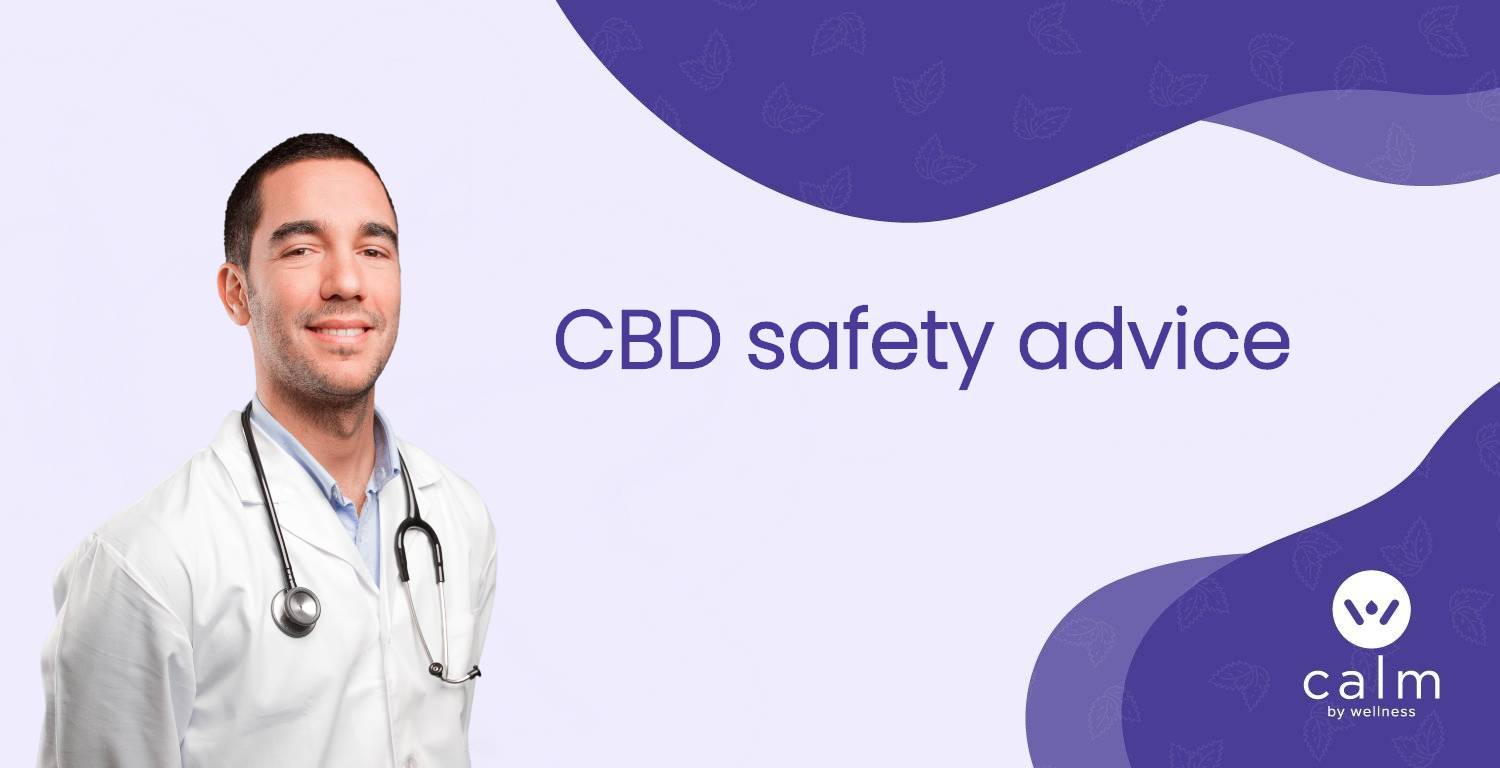
One of the main reasons people with sleep issues turn to CBD is because the traditional pharmacological treatments are either not effective enough or they have serious unwanted and sometimes dangerous adverse effects. For example, standard sleeping pills can cause depressed breathing, sleepwalking, tolerance, and addiction. In some cases, the result can be fatal.
There is not enough evidence on the long-term effects of CBD to rule out serious risks entirely. However, current research, including some long-term studies, indicates that CBD does not have any serious side effects.
Contrary to cannabis myths commonly circulated, CBD is not addictive, nor is it associated with compulsive use. The World Health Organization has specifically stated, “In humans, CBD exhibits no effects indicative of any abuse or dependence potential.” Non-serious side effects can include diarrhea and changes in appetite or weight, and these side effects are typically mild to moderate only.
CBD’s potential interaction with other medications is still under investigation. It may interact with blood thinners, for instance. It may also increase the effects of other drugs, including the benzodiazepine clobazam. As such, it is important to consult with your doctor before taking CBD for sleep issues to avoid possible unwanted drug interactions.
The most common safety issue associated with CBD has nothing to do with the substance itself. CBD’s legal status in the US, with cannabis still being a schedule 1 drug means that the FDA does not regulate it. CBD products are then vulnerable to the whims of CBD manufacturers who are sometimes more concerned about profits than the well-being of their customers.
Random CBD testing has found certain products to contain contaminants, heavy metals, pesticides, and other dangerous chemical additions, such as synthetic cannabinoids. These unlisted additions to CBD products have led to hospitalizations. Other times, CBD contains different quantities of CBD than what is listed on the package. Some tested CBD products indicated no CBD present at all.
The best way to go about finding a safe CBD to use is to find trustworthy brands, which requires some research. Reputable brands will typically be transparent about its source (where it was grown), include specific information about its extraction method and purity, and be third party tested.
Another issue with CBD safety has to do with dosing. Lack of CBD regulation means that effective therapeutic doses are still largely unknown. While anecdotal evidence exists with dosage advice for CBD, none of it has been verified by quality research.
In addition to dosage, individual biological factors like weight and metabolism can impact the intensity and duration of CBD’s effects, meaning that experts typically advise users to begin with a low dose and gradually increase it until the desired effects are achieved. A low dose of CBD is usually considered between 5 and 10 mg twice a day, a moderate dose between 10 and 25 mg twice a day, and a high dose between 20 and 30 mg twice a day. Keep in mind that these are anecdotal estimates.
National Institutes of Health. (2019). How disrupted sleep may lead to heart disease. Retrieved from: https://www.nih.gov/news-events/nih-research-matters/how-disrupted-sleep-may-lead-heart-disease
Shannon, S., et al. (2019). Cannabidiol in Anxiety and Sleep: A Large Case Series. The Permanente Journal. Retrieved from: https://www.ncbi.nlm.nih.gov/pmc/articles/PMC6326553/#!po=73.0769
Babson, Kimberly, et al. (2017). Cannabis, Cannabinoids, and Sleep: A Review of the Literature. Current Psychiatry Reports. Retrieved from: https://pubmed.ncbi.nlm.nih.gov/28349316/
Suraev, Anastasia et al. (2020). Cannabinoid therapies in the management of sleep disorders: a systematic review of preclinical and clinical studies. Sleep Medicine Reviews. Retrieved from: https://www.sciencedirect.com/science/article/abs/pii/S1087079220300824
Vučković, Sonja et al. (2018). Cannabinoids and Pain: New Insights From Old Molecules. Frontiers in Pharmacology. Retrieved from: https://www.ncbi.nlm.nih.gov/pmc/articles/PMC6277878/
Skelley, Jessica, Deas, Crystal, Curren, Zachary, Ennis, Jonathan. (2020). Use of cannabidiol in anxiety and anxiety-related disorders. Journal of the American Pharmacists Association. Retrieved from: https://www.sciencedirect.com/science/article/pii/S154431911930514X
Sinrich, Jenn. (2018). Here’s What Doctors Really Think Of CBD Oil. Glam. Retrieved from: https://www.glam.com/wellness/heres-what-doctors-really-think-of-cbd-oil
Vigil, Jacob et al. (2018). Effectiveness of Raw, Natural Medical Cannabis Flower for Treating Insomnia under Naturalistic Conditions. Medicines. Retrieved from: https://www.ncbi.nlm.nih.gov/pmc/articles/PMC6164964/#__ffn_sectitle
Lyon, Louisa. (2020). THC and CBD: is medical cannabis overhyped or under-prescribed? Brain. Retrieved from: https://academic.oup.com/brain/article/143/4/e34/5813686
Pesantez-Rios, G. et al. (2017). [Cannabidiol: its use in refractory epilepsies]. Revista de Neurologia. Retrieved from: https://europepmc.org/article/med/28726233
Zhornitsky, Simon & Potvin, Stéphane. (2012). Cannabidiol in Humans—The Quest for Therapeutic Targets. Pharmaceuticals. Retrieved from: https://www.ncbi.nlm.nih.gov/pmc/articles/PMC3763649/?report=reader#__ffn_sectitle
Linares, Ila et al. (2018). No Acute Effects of Cannabidiol on the Sleep-Wake Cycle of Healthy Subjects: A Randomized, Double-Blind, Placebo-Controlled, Crossover Study. Frontiers in Pharmacology. Retrieved from: https://www.ncbi.nlm.nih.gov/pmc/articles/PMC5895650/#__ffn_sectitle
Russo, Ethan et al. (2007). Cannabis, Pain, and Sleep: Lessons From Therapeutic Clinical Trials of Sativex, a Cannabis-Based Medicine. Chemistry and Biodiversity. Retrieved from: https://pubmed.ncbi.nlm.nih.gov/17712817/
Freeman, Abigail et al. (2019). How does cannabidiol (CBD) influence the acute effects of delta-9-tetrahydrocannabinol (THC) in humans? A systematic review. Neuroscience & Biobehavioral Reviews. Retrieved from: https://www.sciencedirect.com/science/article/abs/pii/S0149763419305615
Furst, Jay. (2019). CBD products, hemp oil may be helpful but more research is needed, Mayo Clinic review says. Mayo Clinic. Retrieved from: https://newsnetwork.mayoclinic.org/discussion/cbd-products-hemp-oil-may-be-helpful-but-more-research-is-needed-mayo-clinic-review-says/
Devitt-Lee, Adrian. (n.d). What is the best way to take CBD? ProjectCBD. Retrieved from: https://www.projectcbd.org/how-to/use-cbd-and-cannabis
Harvard Health Letter. (2017). Learn the risks of sleep aids. Harvard Health Publishing. Retrieved from: https://www.health.harvard.edu/sleep/learn-the-risks-of-sleep-aids
Laux, Linda et al. (2019). Long-term safety and efficacy of cannabidiol in children and adults with treatment resistant Lennox-Gastaut syndrome or Dravet syndrome: Expanded access program results. Epilepsy Research. Retrieved from: https://www.sciencedirect.com/science/article/pii/S0920121118305837
Grinspoon, Peter. (2018). Cannabidiol (CBD) — what we know and what we don’t. Harvard Health Publishing. Retrieved from: https://www.health.harvard.edu/blog/cannabidiol-cbd-what-we-know-and-what-we-dont-2018082414476
Larsen, Christian & Shahinas, Jorida. (2020). Dosage, Efficacy and Safety of Cannabidiol Administration in Adults: A Systematic Review of Human Trials. Journal of Clinical Medicine Research. Retrieved from: https://www.ncbi.nlm.nih.gov/pmc/articles/PMC7092763/#__ffn_sectitle
Antoniou, Tony et al. (2020). Drug interactions with cannabinoids. CMAJ Group. Retrieved from: https://www.cmaj.ca/content/192/9/E206.short
Gill, Lisa. (2019). CBD may be legal, but is it safe? Consumer Reports. Retrieved from: https://www.consumerreports.org/cbd/cbd-may-be-legal-but-is-it-safe/

Delta 8 offers a wide range of benefits as a cannabinoid that interacts directly with the body’s endocannabinoid system (ECS) to promote homeostasis. While many

Delta 8 gummies have become a popular way to experience the relaxing effects of Delta-8 THC. But like any consumable, they do have a shelf
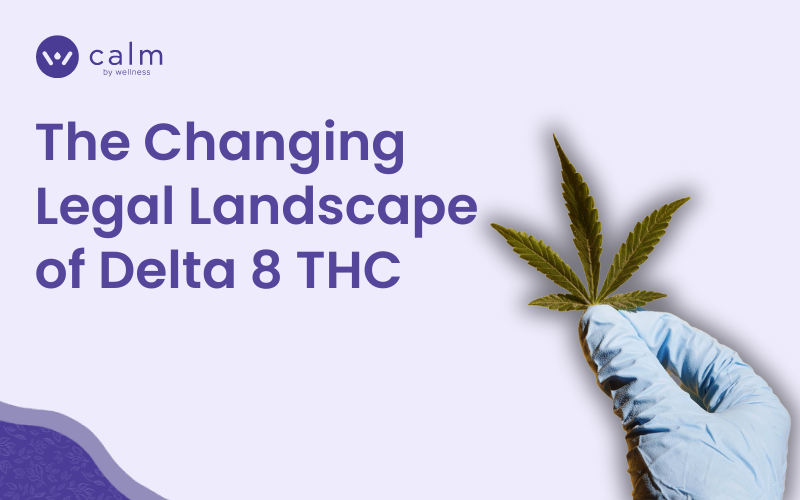
Cannabis laws in the United States are constantly changing, making it difficult to keep track of what’s legal and what’s not. Delta 8 THC, a

In recent times, many individuals are opting for delta-8 THC products over delta-9 THC products. Cannabis plants are rich in various cannabinoids, each offering unique

Winter’s arrival brings a unique charm: cozy nights, festive cheer, and a host of activities that truly shine in the chilly weather. Amidst this winter

Calm by Wellness is the most recommended CBD & Delta-8 oil in the world. Trust our verified 5 star reviews and testimonials. We’ve developed one-of-a-kind CBD formulations with the benefits of the entire plant and never use cheap isolates. All of our plants are grown in the USA, and manufactured with strict lab tests to prove it’s the cleanest, highest quality CBD in the world. Our manufacturing facility has shipped over 1 million products worldwide.
Calm by Wellness
609 Deep Valley Dr. Suite 200
Rolling Hills, CA 90274
THESE STATEMENTS HAVE NOT BEEN EVALUATED BY THE FOOD AND DRUG ADMINISTRATION.
THIS PRODUCT IS NOT INTENDED TO DIAGNOSE, TREAT, CURE, OR PREVENT ANY DISEASE.

Calm by Wellness is the most recommended hemp CBD oil in the world. Trust our verified 5 star reviews and testimonials. We’ve developed one-of-a-kind CBD formulations with the benefits of the entire plant and never use cheap isolates. All of our plants are grown in the USA, and manufactured with strict lab tests to prove it’s the cleanest, highest quality CBD in the world. Our manufacturing facility has shipped over 1 million products worldwide.
Calm by Wellness
609 Deep Valley Dr. Suite 200
Rolling Hills, CA 90274
[email protected]
THESE STATEMENTS HAVE NOT BEEN EVALUATED BY THE FOOD AND DRUG ADMINISTRATION.
THIS PRODUCT IS NOT INTENDED TO DIAGNOSE, TREAT, CURE, OR PREVENT ANY DISEASE.